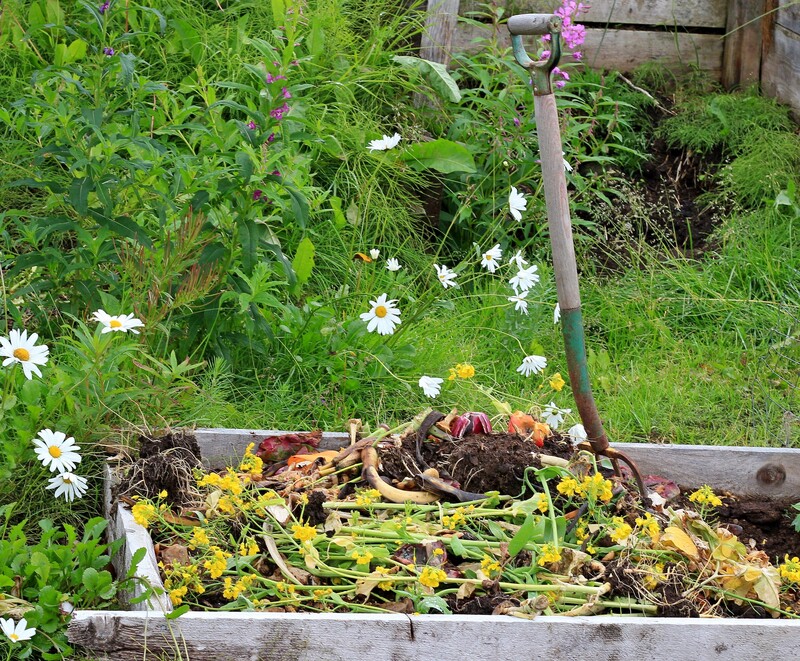The Ultimate Guide to Reducing Plastic Dependency
Plastic pollution has become one of the most pressing environmental challenges facing the world today. From oceans choked with debris to landfills overflowing with single-use items, our dependency on plastic is leaving a lasting mark on the planet. This comprehensive guide explores the impact of plastics, the importance of reducing plastic dependency, and actionable steps individuals, businesses, and communities can take for a sustainable future.
Understanding Our Plastic Problem
What is Plastic Dependency?
Plastic dependency refers to our overreliance on synthetic polymers--commonly known as plastics--for everyday products and packaging. From plastic bags and bottles to food containers and packaging, modern society has integrated plastic into almost every facet of life.
The Environmental Impact of Plastics
- Non-biodegradability: Plastics can take hundreds to thousands of years to decompose, persisting in the environment and causing long-term harm.
- Ocean Pollution: Every year, over 8 million tons of plastic waste enters the oceans, threatening marine life and entering the food chain.
- Wildlife Hazards: Animals often mistake plastic for food or become entangled in it, leading to injury or death.
- Microplastics: Tiny fragments of plastic end up in water, soil, and even the air, presenting health hazards for both wildlife and humans.
- Resource Depletion: The production of plastic relies heavily on fossil fuels, contributing to greenhouse gas emissions and climate change.

Why We Need to Reduce Our Plastic Dependence
Reducing plastic dependency is not just an environmental responsibility--it is an essential step toward protecting our health, preserving natural resources, and ensuring a sustainable future for generations to come.
Benefits of Reducing Plastic Usage
- Cleaner Oceans and Landscapes: Less plastic waste means healthier ecosystems.
- Safer Food and Water: Minimized microplastic contamination in our food supply and water sources.
- Reduced Carbon Footprint: Cutting down on plastic lowers dependence on fossil fuels and reduces greenhouse gas emissions.
- Economic Savings: Reusable alternatives and less waste can lead to cost savings for consumers and businesses.
- Improved Public Health: Fewer toxic chemicals and microplastics in our environment means less risk to human health.
How to Reduce Plastic Dependency: Actionable Steps
1. Refuse Single-Use Plastics
Begin your journey by refusing plastic products where alternatives exist. Say no to straws, cutlery, grocery bags, and disposable cups. Choose options that are biodegradable, compostable, or reusable instead.
- Bring your own shopping bags and containers to the store.
- Opt for paper-wrapped or loose produce instead of plastic packaging.
- Carry a reusable water bottle and coffee cup.
- Use bamboo or metal straws in place of plastic ones.
2. Embrace Reusable Products
Transitioning to reusable alternatives significantly lowers your plastic footprint. Invest in high-quality items that endure repeated use:
- Stainless steel or glass bottles for beverages.
- Cloth shopping bags for groceries.
- Beeswax wraps and glass containers for food storage.
- Reusable razors, cloth napkins, and silicone baking mats.
3. Support and Choose Sustainable Brands
Many companies are leading the way in sustainability by offering products with minimal or no plastic packaging. Do your research and support businesses that align with your values. Look for certifications such as B Corporation, Plastic-Free, or Zero Waste.
4. Recycle Responsibly
Recycling alone won't solve the plastic problem, but proper sorting and disposal can help divert waste from landfills and oceans:
- Follow local recycling guidelines for plastics and other materials.
- Rinse containers before recycling to avoid contamination.
- Participate in community recycling programs and initiatives.
- Support efforts to improve recycling infrastructure.
5. Compostable and Biodegradable Alternatives
Consider bioplastics, compostable packaging, and plant-based materials for situations where disposables are necessary. These options can be less harmful if disposed of correctly, though they are not a perfect substitute for reusables.
6. Educate and Advocate
Raise awareness about plastic pollution and the importance of reducing plastic dependency. Share information with friends, schools, and workplaces to inspire collective action. Support policies and legislation that limit single-use plastics and encourage sustainable alternatives.
- Organize or join local cleanup events.
- Advocate for bans or restrictions on certain plastic products.
- Encourage local businesses to switch to sustainable packaging.
Reducing Plastic Dependency at Home
In the Kitchen
- Use glass, stainless steel, or ceramic containers for food storage.
- Buy in bulk to reduce packaging waste.
- Choose unpackaged or minimally packaged products whenever possible.
- Compost food scraps and use reusable produce bags.
Personal Care
- Switch to bars of soap, shampoo, and conditioner instead of bottled versions.
- Choose a bamboo toothbrush instead of plastic.
- Explore refillable cosmetics and eco-friendly menstrual products.
Around the House
- Replace plastic cleaning bottles with bulk concentrates and reusable spray bottles.
- Invest in sustainable toys and pet products.
- Purchase clothes made from natural fibers rather than synthetics to reduce microfiber pollution.
Reducing Plastic Use as a Business or Organization
The business sector can make a huge impact by addressing plastic overuse in supply chains and workplace operations.
Strategies for Businesses
- Eliminate unnecessary plastic from product packaging.
- Source materials made from recycled or renewable content.
- Offer incentives for customers to use reusable bags and containers.
- Implement recycling and composting programs in the workplace.
- Encourage suppliers to minimize plastic in shipments.
Corporate Social Responsibility
Companies have a unique opportunity to influence both their supply chains and consumers. Transparent reporting on plastic reductions, ambitious targets, and public education campaigns showcase leadership and responsibility.
Government and Policy Solutions
Plastic Bans and Taxes
Governments worldwide are introducing plastic bag bans, straw bans, and taxes on single-use products. These policies encourage both consumers and producers to shift toward alternatives and drive market innovation.
Extended Producer Responsibility (EPR)
EPR programs make manufacturers accountable for the environmental impact of their products. This includes the design, collection, and disposal of packaging, incentivizing the use of eco-friendly materials and recycling.
Investing in Waste Management
Support for advanced recycling technologies, efficient collection systems, and public education can drastically reduce plastic waste and improve recovery rates.
Innovations: The Future of Reducing Plastic Use
Emerging Materials
- Biodegradable plastics made from cornstarch, potato starch, or seaweed.
- Edible packaging for foods and beverages.
- Reusable smart packaging with sensor features to cut waste.
Technology and Design
- Advanced recycling methods that turn plastic waste into new materials or fuels.
- Products designed for modular repair and long lifespans.
- Packaging solutions that minimize material use and maximize recyclability.

Top Tips for Staying Committed
- Start small: Focus on one habit at a time, such as carrying your own shopping bag.
- Stay informed: Follow news on sustainable innovations and new laws.
- Join communities: Seek out groups or social media accounts focused on plastic reduction for support and ideas.
- Track your progress: Keep a journal or app to remind you of your efforts and successes.
- Celebrate wins: Share your achievements and encourage others to join in the movement.
Conclusion: Making a Difference Together
The challenge of breaking plastic dependency may seem overwhelming, but every action--no matter how small--adds up. By rethinking habits, embracing alternatives, and advocating for systemic change, each of us can contribute to a cleaner, healthier planet.
Remember, your choices matter. Whether it's using a reusable bottle, supporting a sustainable business, or participating in cleanup events, you are part of the solution. Reducing our reliance on plastic isn't just a trend; it's a necessary and attainable goal for the well-being of current and future generations.
Frequently Asked Questions About Reducing Plastic Dependency
- What is the most effective way to reduce plastic use?
Refusing single-use plastics and embracing reusable products are some of the best ways to cut your plastic footprint. - Are bioplastics truly environmentally friendly?
Some bioplastics can be composted, but not all are created equal. Research disposal options and prioritize reusables first. - Can individuals really make a difference?
Absolutely! Collective individual choices send a powerful message to businesses and policymakers, driving broader change.
For more insights and resources on how to minimize your plastic addiction, continue exploring our articles and join the global movement towards a plastic-free planet! Together, let's build a sustainable world with less plastic and more hope.